English Language and Literature
💡 Skills Development
“Learning is a consequence of thinking.” – Ron Ritchhart
In our EL and Literature classrooms, we embrace this belief by creating thinking classrooms where students are empowered to reflect on their own learning, apply strategies independently, and make meaning of texts in critical, creative and collaborative ways. Our programmes nurture empathetic readers, persuasive writers, and reflective thinkers, equipping students with the communication and critical thinking skills needed to engage with the world meaningfully.
Key Competencies
● Critical Thinking: Students interpret and evaluate diverse texts—from advertisements to literary works.
● Communication: They express personal voice across modes—through podcasts, debates, drama, and writing—guided by a Communication Progression Map.
● Collaboration: Group projects like tableaux, advertisements, and performance tasks teach students to co-construct meaning and respect multiple perspectives.
Learning Approaches
● Inquiry Through Dialogue: Lessons are framed by real-world questions, encouraging exploration of voice, identity, and values.
● Hands-On Projects: Tasks like ad creation, podcasting, and visual storytelling let students apply language learning in creative formats.
● Real-World Application: Writing and speaking tasks mirror real-life communication, from advocating for causes to promoting responsible tourism.
Future Readiness
● Learners for Life: Reflection routines and feedback help students develop self-awareness and ownership of learning.
● Adaptable Communicators: Students learn to tailor their language to audience and purpose, across formal and informal contexts.
🚀 Signature Programmes
-
Communication Modules (Sec 1–4)
Students progress from confident to effective communicators across four years. Sec 1s explore verbal and non-verbal skills through drama and tableaux, Sec 2s develop empathy via podcast creation, Sec 3s sharpen persuasive skills through debate, and Sec 4s produce self-promotion material based on their post-secondary aspirations. -
Lite!Up Post-Examination Activities
Lite!Up celebrates language through performance and school-wide events like the Tableau Competition (Sec 1) and Debate Showcase (Sec 3), offering students authentic opportunities to showcase their learning. -
Literature Learning Journeys
Students explore live theatre, author talks, and symposiums, connecting literature to real-world issues and deepening their appreciation for its ethical and aesthetic dimensions.
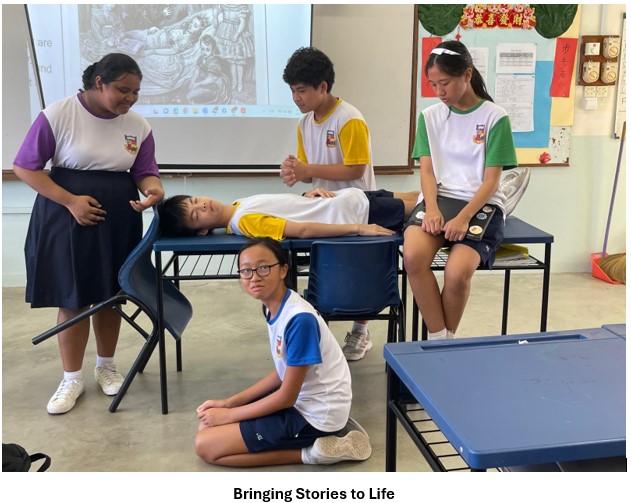
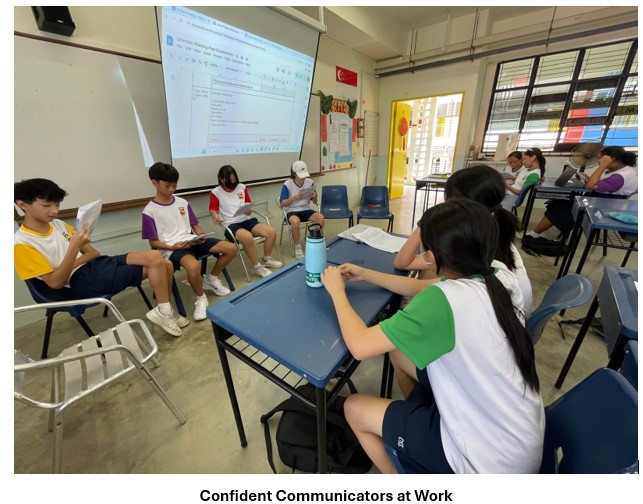
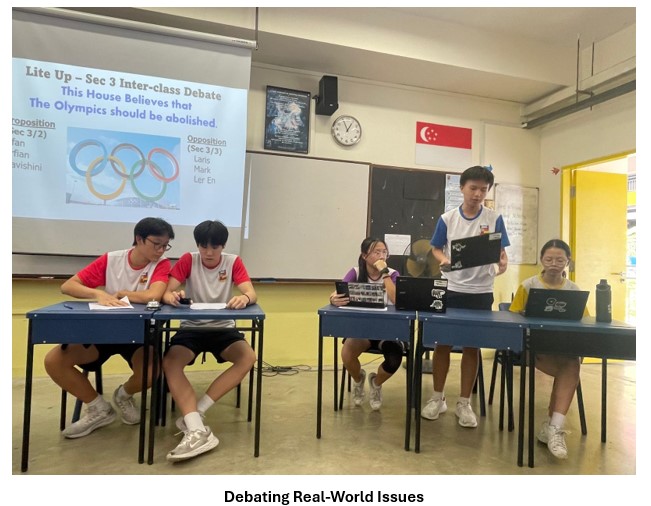
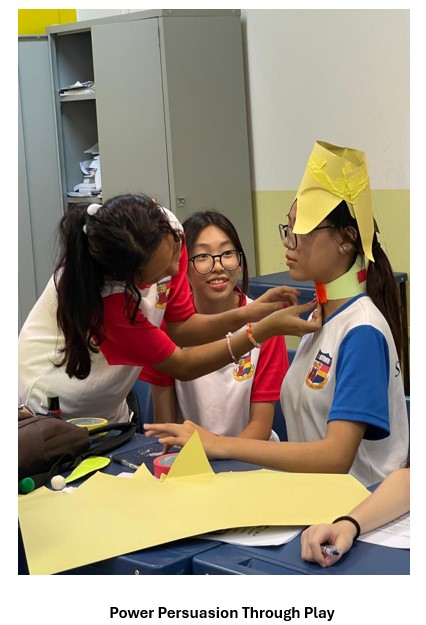
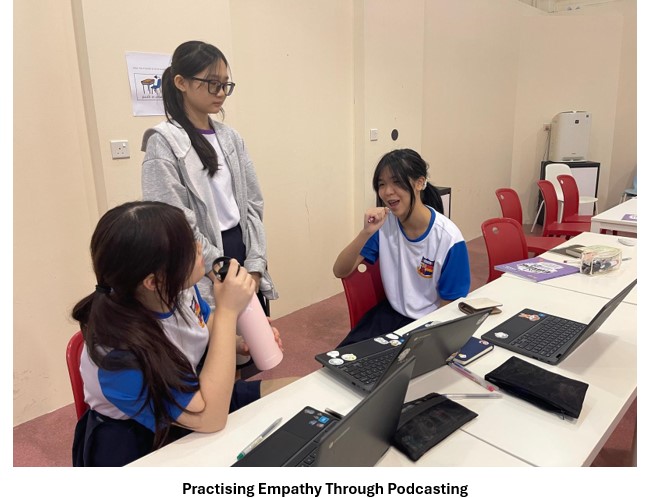
-
Confident Communicators at Work
Students engage in peer assessment to refine their dramatic reading skills, learning to give and receive feedback as part of the Sec 1 Communication Module.
-
Practising Empathy Through Podcasting
Sec 2 students sharpen their listening and speaking skills by asking empathetic questions—an essential step in preparing for their podcast interviews.
-
Debating Real-World Issues
As part of Lite!Up, students take the stage in an interclass debate on whether the Olympics should be abolished, applying persuasive techniques in front of a live audience.
-
Powering Persuasion Through Play
In this Lite!Up activity, students design props to enhance their persuasive pitches on cosplay, combining creativity with spoken impact.
-
Bringing Stories to Life
Through the Confident Communicator module, students recreate tableau scenes of their choice, developing non-verbal expression and ensemble storytelling skills.

